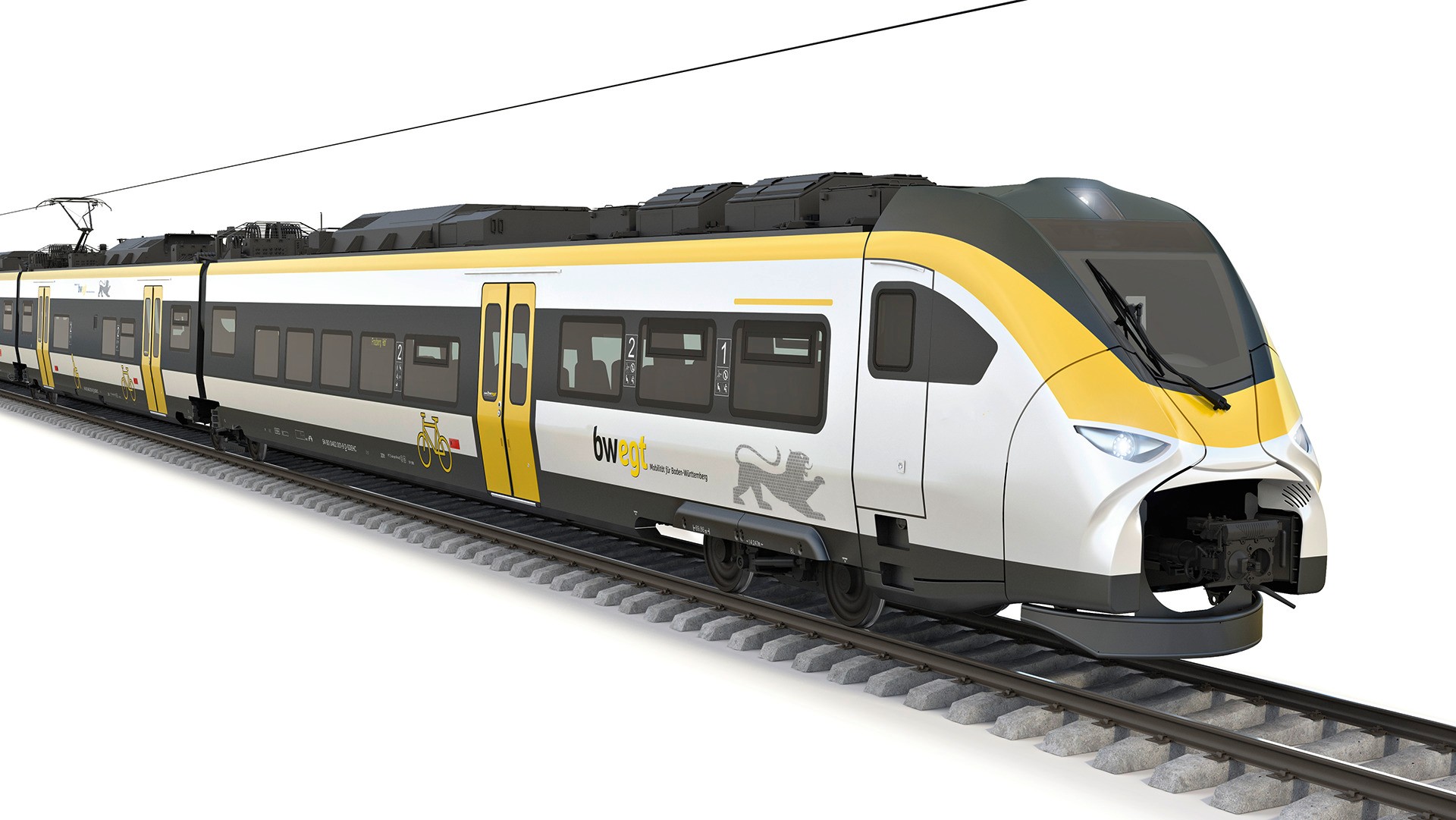 Siemens Mobility was awarded a EUR 300 million contract for the supply of 28 three-car Mireo trains for Baden-Württemberg for the “Digital Node Stuttgart” (DKS) pilot project of “Digital Rail Germany” (DSD).
Siemens Mobility was awarded a EUR 300 million contract for the supply of 28 three-car Mireo trains for Baden-Württemberg for the “Digital Node Stuttgart” (DKS) pilot project of “Digital Rail Germany” (DSD).
The framework agreement, signed with the State Institute for Rail Vehicles Baden-Württemberg (SFBW), includes a ten-year maintenance contract with an option for extending it by a further 20 years.
The trains will be delivered in record time between November 2025 and April 2026. They will offer a further improved level of passenger comfort and convenience by providing 218 fixed seats as well as free WiFi service and barrier-free access. The higher energy efficiency and operating reliability of the Mireo will ensure trouble-free, climate-friendly operation and offer further passenger benefits.
The trains will have complete DSD equipment, including the latest automatic ETCS and Level 2 (GoA 2) Automatic Train Operation (ATO) and will be capable of operating on steep grades and be approved for operation in Austria. Siemens Mobility is also equipping the new trains with a Train Integrity Monitoring System as well as the Future Railway Mobile Communication System (FRMCS) for the first time in Germany. This digital equipment allows for more tightly scheduled, energy-saving operations through digitally predictive signaling and driving instructions.
Mireo trains for Baden-Württemberg will “primarily serve to keep passenger operations in the state as convenient and comfortable as possible while the existing fleet is being retrofitted with DSD technology,” the head of the State Ministry of Transport, Berthold Friess, said, highlighting that the state “is continuing to be a trailblazer in the digitisation of railways.”
In the course of implementing the nationwide rollout of “Digital Rail Germany”, including the Digital Node Stuttgart pilot project, existing trains purchased by SFBW and leased to various railway operating companies (EVUs) have to be retrofitted with DSD train equipment. During these retrofits, trains leased to the EVUs are not available for use. The need for their replacements is set for a period of at least ten years and they must ensure the highest degree of flexibility due to uncertainties involved in expanding the infrastructure and carrying out the DSD retrofits. The goal is to be able to swap trains and provide replacements to the EVUs while their trains are being retrofitted.
The Mireo trains can also be used as a redundancy fleet as needed. The trains will initially operate in the Stuttgart metropolitan region as part of the DKS pilot project and subsequently be used throughout the state of Baden-Württemberg and neighboring states. It is planned to approve the trains for operation in Austria and for border routes to Switzerland, such as to the central station of Basel.
The trains are required to be commissioned in the infrastructure of the Digital Node Stuttgart, since only trains with specifically functioning ETCS systems will be able to operate on those routes. This is the first order for Siemens Mobility requiring the implementation of complete DSD train equipment.
Share on:



